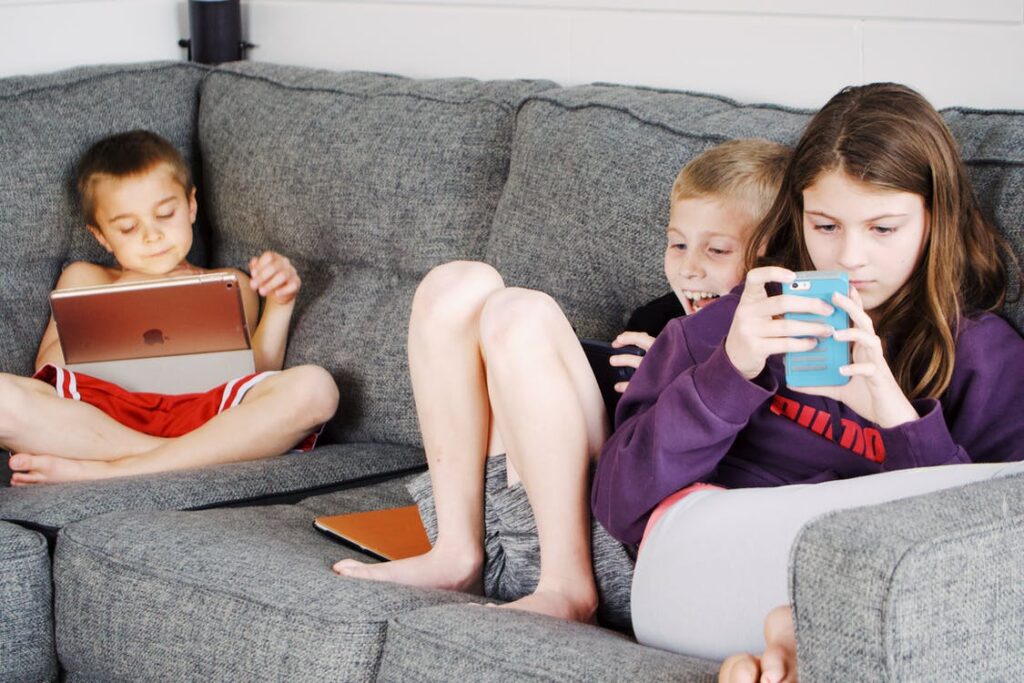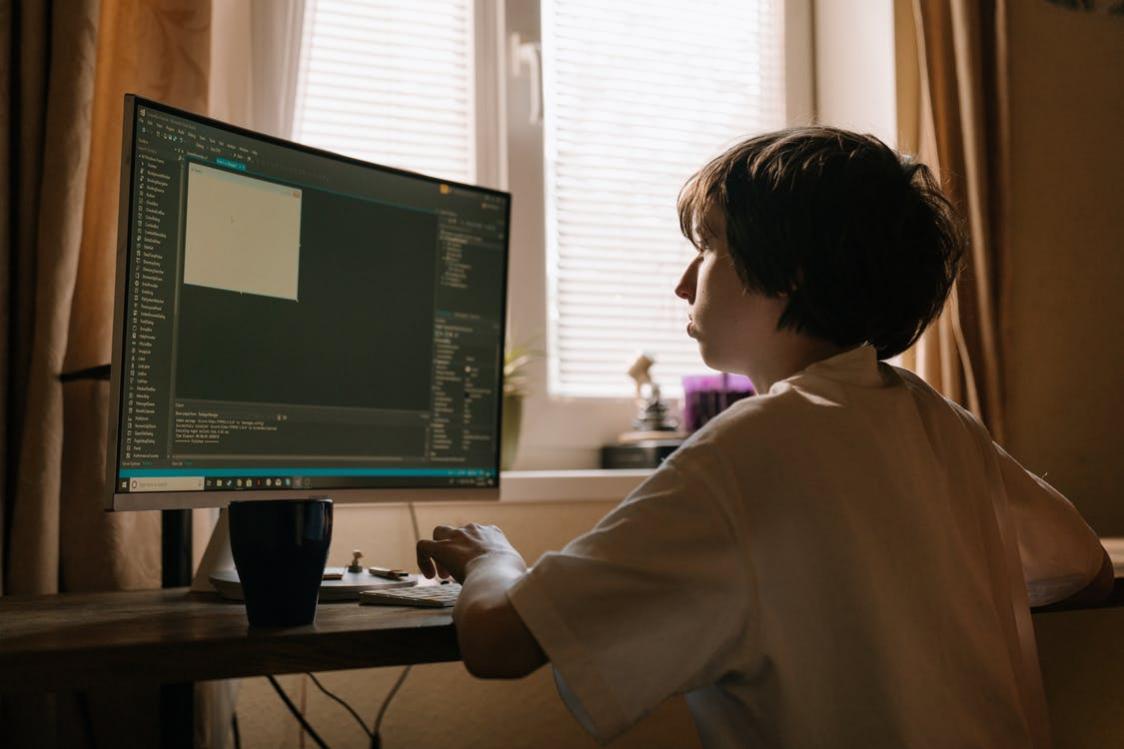Two decades back, coding was a cool fad. But, with passing time, coding has evolved to be much more than a trend, turning into a rewarding career. As of end 2020, the STEM education stats reflect how 71% of all new jobs are in the field of computing. However, only 8% of STEM students graduate in Computer Science. In other words, there are lucrative jobs but not enough candidates. So, why is there a gaping difference in the job opportunities and the number of coders turning out? Is coding really that hard?
Like every other discipline, coding is a subject that must be started at a nascent stage. This is why educators around the world are starting early and teaching kids how to code. When it comes to coding, it just isn’t about rewarding career prospects. Coding is also about problem solving, creativity, collaboration, and communication.
On that note, let us check out the reasons why “every interested” kid should learn to code.
- With technology advancing in leaps and bounds, kids with basic programming knowledge learn how to interact with technologies and tap into their advantages.
- Kids who know how to code get a competitive advantage when applying in colleges, or for internships, and jobs.
- Since coding is logic-based, kids get a creative hiatus where they can build websites and apps which act as an outlet for expression.
- Kids who know how to code learn how to approach and break complex problems into smaller parts using logical and computational thinking.
- Like every other discipline, the world of coding comes with its fair share of challenges. By making coding mistakes and solving them, they acquire the valuable skill of persistence.
- Since most programming assignments demand more than one head, kids who code learn how to collaborate with peers and work in unison.
As you can see, getting your kid to start coding at a young age will help him or her hone skills that will be useful in the long haul. That said, it is my earnest request that you do not pressurise your kid to learn to code. If he or she shows genuine interest in gadgets and gizmos, only then try to channelise their hobbies into something more lucrative.
That brings us to the more pressing concern: How to teach your kid to code?
The world’s youngest computer programmer Muhammad Hamza Shahzad is an eleven y/o boy from Birmingham, the UK. He has achieved the programming certificate from the tech mogul Microsoft when he is just 9!! And he isn’t the only one! You have Tanmay Bakshi, the 16 y/o who is also the youngest IBM Watson developer (and a TEDx speaker) and Isabel Sieh, who founded the coding community “Girl Will Code” when she was just 13. If these kids could do it, it isn’t something unattainable for your kids too if they are guided on the right path.

So, where do you start?
While most schools in the UK offer coding classes softwareacademy.co.uk to interested kids, you can always take a step ahead by enrolling your kids to one of these online programming courses.
5 Online Coding Courses for Kids in the UK
-
CoderDojo
CoderDojo is more like a community-based programming club for kids and teenagers that offers most courses for free. Some of the most established coding geniuses and programming professors from the UK come together and volunteer to share what they know. Tech hotshots like Skyscanner and ustwo games are also involved. So, your kid will be learning from the best. The courses are designed for kids aged 7-17 and teach how to build websites, apps and games.
-
FunTech
At FunTech, you get to choose from full-time courses and coding summer camps as per the schedule of your kids. The classes are designed for kids of age 7 to 13. The younger kids can start with Scratch Programming, Minecraft mods, and Lego robotics. The ones with necessary programming skills can learn about app designing, Java and Python coding, and drone behaviour coding.
-
Bermotech
A professional training company, the brand mission of Bermotech was to bridge the skills gap of adults in the workplace. The company also offers coding camps for kids and teenagers, with the focus on Python coding, app development, and robotics programming. Your kids might even get lucky and also bag tech entrepreneurship if they perform well in the program.
-
Code Club
Code Club is a community-driven coding course run by volunteers. The brand offers after-school courses for young children aged 9to13. The courses at Code Club focus on Scratch Programming, and languages like Python, HTML and CSS. Your kids can also learn how to develop Raspberry Pi projects and create Sonic Pi soundscapes using Sense HAT.
-
W3 Schools
Although these are not exactly like courses, W3 Schools can provide your kids with all the resources required to learn HTML, CSS, JavaScript, PHP, SQL, jQuery, AngularJS, XLM and Bootstrap. Now, the website can be a little tricky to navigate for kids. But your kids will find an archive of wonderful resources that they can use for their Since mastering a programming language can be difficult at a you programming assignments with the help of a grownup.
ng age, you can reverse the process to build an interest in coding in your kid. Now, if your kids want to build something, there are several app creation tools that they can use to create an app with programming features. Let’s start with the easy stuff first.
5 Tools for Kids with Little Programming Knowledge to Build Apps
Here is a list of the top tools that your little one can use to build apps without knowing how to code.
- Game Salad comes with a drag and drop feature that can be used to develop games for iPhone and Android devices.
- AppMakr is one of the best DIY platforms that your kids can use to create content-based apps that are compatible with Android, iOS, and Windows.
- If your kid is into computer games, then Gamemaker is the best option to create a game for both iOS and Android.
- Your kids can use Stencyl to create iOS and Flash 2D games without writing a single line of code.
- Kids can use Construct2 to create 2D games without writing codes and then export it to a version compatible with iOS or Android.
5 Tools for Kids with Basic Coding Knowledge to Make Apps
If your kid has necessary programming skills and knows languages like Lua, HTML or R programming, solving assignments with the help of these third-party platforms will be a lot easier.
- If your kids know how to code in HTML, CSS, and JavaScript, you can introduce them to PhoneGap to build mobile applications. The final code can be converted to Android and iOS using a JavaScript API.
- You can also consider Corona SDK, which is a framework suitable for developing mobile 2D games for mobile phones using Lua.
- If your kids want to build a game but not from scratch, they can use Unity 3D to create interactive 3D games and then convert them to different platforms.
- For a kid who is well-versed with the fundamentals of CSS, JavaScript or HTML5, Apache Cordova can be an excellent option to build an array of web applications.
- Your kids can also use Buildfire to build Android, iOS and web apps with easy drag-and-drop UI.
Endnote,
With all the resources and courses at hand, the onus to guide your child onto the right path rests with you. Other than choosing the right course for them, make sure to make coding fun for your kids. Also, do not compare your kid with another. Each of them is dynamic and will learn at their own pace. Please support them and cheer them, and your kid will master coding like a pro.
Author Bio: Grecy is a celebrated app developer hailing from Birmingham, the UK. She is also associated with the academic brand MyAssignmenthelp.com.uk where she offers programming assignment help to budding coders. In her free time, Reid loves to bake and go on hikes.



